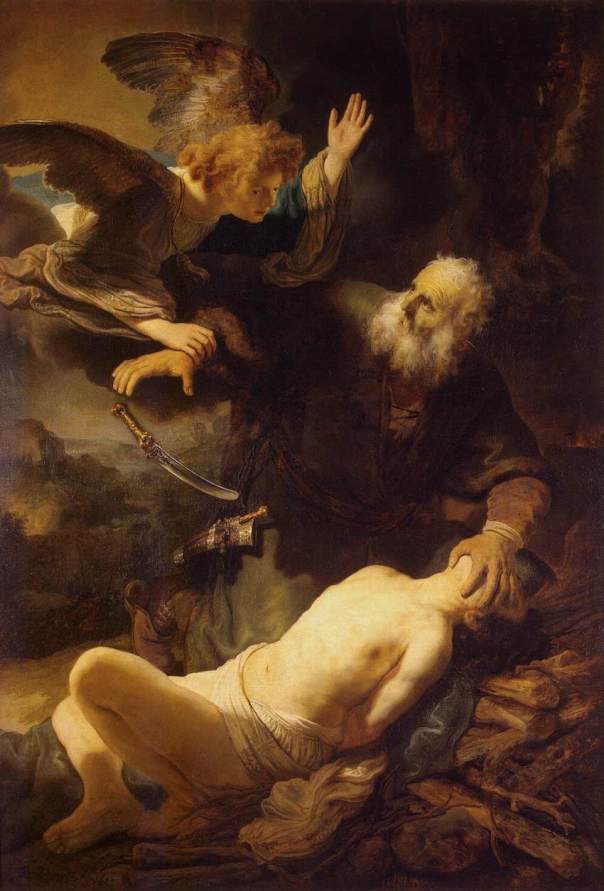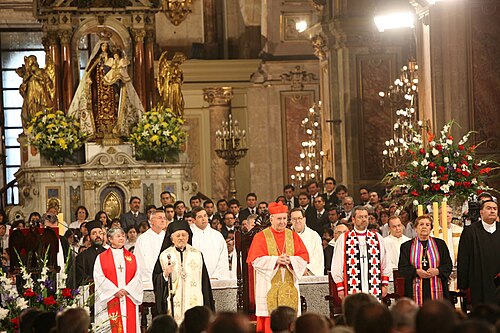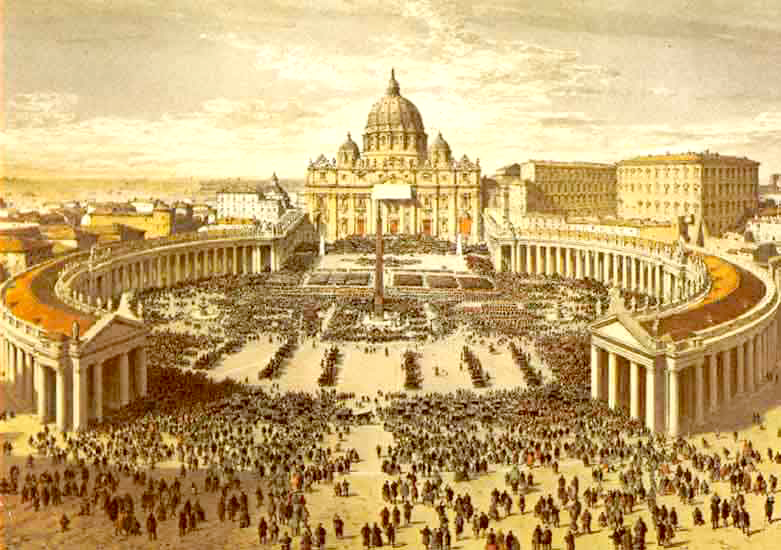 A lot of teachers have phrases and mannerisms that become inherently associated to them. Mr. Finke squints at students and their likely incorrect answers. Mr. D'Souza has his Friday Funnies, and uses the words "trivial" and "tedious" more often then maybe he realizes. But the most meaningful association that I have encountered at Jesuit between any one phrase and a teacher is Mr. Cole and "The Glory of God is man fully alive."
A lot of teachers have phrases and mannerisms that become inherently associated to them. Mr. Finke squints at students and their likely incorrect answers. Mr. D'Souza has his Friday Funnies, and uses the words "trivial" and "tedious" more often then maybe he realizes. But the most meaningful association that I have encountered at Jesuit between any one phrase and a teacher is Mr. Cole and "The Glory of God is man fully alive."
In reflecting on this quote, I will start with the latter portion. What does man fully alive mean? The short answer is that man is doing what he is created to do. Metaphors for this can be observed in almost every aspect of nature. One of Mr. Cole's favorites is that of a squirrel. A squirrel doing what he is created to do would involve gathering and nuts, making and raising squirrel offspring, and running and climbing on trees. Man is similar in that there are parameters in the definition of what it means to live as a human. The difference is man can go against this image of himself, whereas a squirrel cannot.
Breaking it down even further, what exactly was man created to do? Well in order to understand what man was created to do, we must first understand what he was created with, and who created him in the first place. Man was created in the image of God, with an intellect, will, and a capacity for love. Man was given the gift of life by God, the omni-benevolent Creator. Thus, humans were created to love and serve God with all of their mind, heart, and soul. The only way to fully live is to constantly fulfill this task.
This can be tied in with the Universal Call to Holiness that God extends to all of us. We are all called to sanctify our lives, and in every part of our life at that. To truly live fully alive, your full life must be given to God.
Now to the first part of the phrase, "the Glory of God." The Glory of God is His approval, His metaphorical (and not literal in any sense) beaming down at us from Heaven. In the phrase "the Glory of God is man fully alive," "is" is a linking verb, meaning that the Glory of God and man fully alive are the same thing. Thus, the Glory of God is man obeying His natural law and doing what He calls man to do.
God does not need such glory. He is omnipotent and perfect. He does not desire anything for Himself, because He by definition could not want anything for Himself. He does however want us to share in His love, which was His purpose in creating us in the first place. Thus, doing what we are called to do--loving and sharing in God and His love--is God's Glory. God gave us life so we could live.
I remember this phrase first being popped in my mind the first day of freshman year. Except this time, Mr. Cole posed it as a question: "what is man fully alive?" I truthfully did not know the answer, but I raised my hand anyway. After all, on the syllabus Mr. Cole had just passed out it said participation was factored into our grade.
It's been real the past two years, Mr. Cole. It is up to me now whether I take what I have learned in Theology I and II and practice it in real life. Either way, you have to know what it means to be man fully alive before you can truly live. Thank you for showing me how to live as I was created to live.
P.S. This is likely our last blog post. Hope all you grads enjoyed it.



























